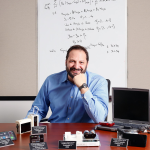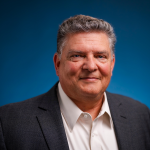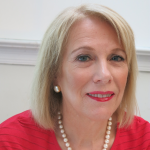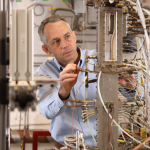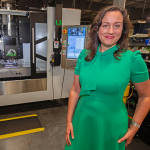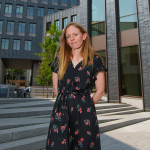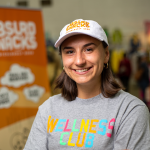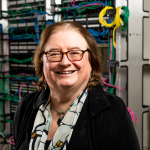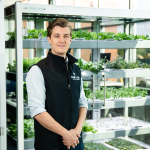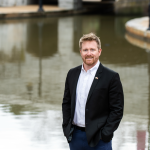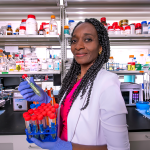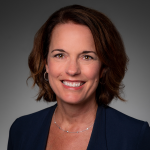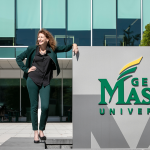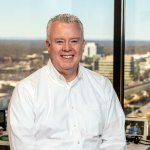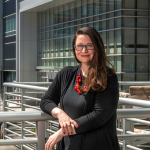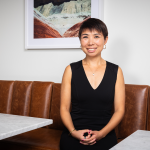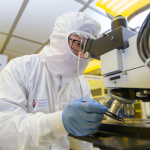

100 People to Meet in 2024: Innovators
These scientists, inventors and entrepreneurs are leading the way in tomorrow’s industries, from artificial intelligence and drone technologies to biotech research.
Michael Beiro
Founder and CEO, Linebird
Ashland
Michael Beiro’s bio on X (formerly Twitter) is to the point: “I make robots that can touch power lines for a living.” Under his leadership, Linebird has developed the first-ever solution to allow “off-the-shelf drones to do hands-on work on live power lines, previously achieved by linemen hanging out of helicopters,” says Beiro, a Virginia Commonwealth University mechanical engineering grad who teamed up with an ex-lineman to develop the concept. Being a power lineworker is one of the 10 most lethal occupations in the U.S., so Linebird’s drones not only save utilities time and money, but they also have the potential to save lives. The company is based in the Dominion Energy Innovation Center’s coworking space in Ashland.
 Marc Breton
Marc Breton
Professor and associate director of research at Center for Diabetes Technology, University of Virginia
Charlottesville
Marc Breton hails from a long line of scientists and doctors, joking that he tried his best to escape the family business and failed. Despite his master’s degree and Ph.D. in systems engineering, the native of France jumped when offered a chance to head a research project with applications in medicine.
“It was an incredible chance to see the fruits of my research applied in clinical care,” he says of inventing an artificial pancreas that could monitor and automatically regulate the blood glucose levels of Type 1 diabetes patients. “It’s mind-boggling that 400,000 to half-a-million people worldwide are now using the device.”
As a result, Breton received U.Va.’s 2022 Edlich-Henderson Innovator of the Year award for faculty members whose work makes an impact on society. The father of three tries hard not to work all the time but notes, “That balance is not always struck.”
 Alex Fox
Alex Fox
Chief growth officer, HawkEye 360
Herndon
At satellite analytics company HawkEye 360, Alex Fox is responsible for various aspects of business development, sales, marketing and sales engineering. His background is in space technology, having previously worked for Harris Corp. as director of space intelligence, surveillance
and reconnaissance solutions. In January, three HawkEye 360 satellites went into orbit during Rocket Lab’s first launch in the United States, which took place at NASA’s Wallops Island facility. The company operates 21 satellites and plans to have 20 clusters with three satellites each by 2025.
Fox enjoys spending time with his family, including helping his son develop his own cybersecurity career and attending his daughter’s soccer and softball games. He serves on the advisory board for alma mater Georgia Tech’s College of Computing.
 Susan Ginsburg
Susan Ginsburg
Founder and CEO, Criticality Sciences
Alexandria
Examining the causes and consequences of the Sept. 11 attacks as a senior counsel on the 9/11 Commission made Susan Ginsburg passionate about making sure that when the unexpected happens, failures are kept small and recovery happens rapidly. Those too were her goals in starting software company Criticality Sciences, which aims to build resilience into critical infrastructure like utilities.
An attorney whose career was centered on public policy and government, Ginsburg is an adviser to the American Bar Association’s Standing Committee on Law and National Security.
Keeping failures small and recovering rapidly not only protects essential producers but also protects the communities they supply and serve, Ginsburg notes. Criticality Sciences entered the market in 2021 and was part of the Dominion Energy Innovation Center, an independent nonprofit accelerator and incubator in Ashland.
 Christopher Goyne
Christopher Goyne
Associate professor and Aerospace Research Laboratory director, University of Virginia
Charlottesville
Boarding an aircraft in New York City and landing in Los Angeles 40 minutes later could be possible within 15 years, says Christopher Goyne, an Australian expert
in hypersonic technology.
“Hypersonic is flight in the atmosphere at Mach 5 and faster, or five times the speed of sound,” explains Goyne, director of U.Va.’s Aerospace Research Laboratory. “We are developing next-generation technology for use by commercial companies, NASA and the U.S. Department of Defense.”
Under a $4.5 million DOD award, Goyne leads a team of collaborating universities and industry partners to develop components for a supersonic combustion scramjet that can handle speeds above Mach 5. Besides fulfilling military needs, the work promises longer-term applications as well, specifically high-speed reusable aircraft that can transport people and goods quickly around the world and space travel that is more efficient and safer than using conventional rockets.
 Nanci Hardwick
Nanci Hardwick
Founder and CEO, Aeroprobe and Meld Manufacturing
Christiansburg
Serial entrepreneur Nanci Hardwick says being called a disruptor at the R&D 100 Awards in 2018 was one of her proudest moments. At the event, her metal 3D printing company, Meld Manufacturing, was named among the 100 most innovative companies in the world and received the award for most market-disruptive new technology.
Rather than melting metal, the company uses pressure and friction to layer materials into shapes of any size, resulting in stronger products that are made faster and with less waste than through traditional manufacturing. Meld is a spinoff of Aeroprobe, another company started by Hardwick, and she also has launched Meld PrintWorks to fulfill customer metal orders.
“I am passionate about restoring manufacturing independence and self-sufficiency in our country,” says Hardwick, who participated in a 2022 roundtable with Treasury Secretary Janet L. Yellen about the semiconductor chip supply chain crisis. “Investments must be made for that to become true again.”
 Nikki Hastings
Nikki Hastings
Executive director and co-founder, CvilleBioHub; Instructor of commerce and Shumway Business Health Science Fellow, University of Virginia
Charlottesville
Nikki Hastings thinks of herself as a scientist helping scientists to do their best work by applying entrepreneurial methodologies. She has a doctorate in biomedical engineering from the University of Virginia, where she leads the graduate-level biotech track at the McIntyre School of Commerce. With the January announcement that U.Va. is establishing the $300 million Paul and Diane Manning Institute of Biotechnology, Hastings has been busier than ever with CvilleBioHub, a nonprofit focused on Charlottesville’s biotech community. In March, the organization received a $100,000 GO Virginia grant to launch CvilleBioLab, an accelerator for early-stage biotech startups.
Hastings, who has been immersed in research, launching companies and helping connect people to one other, says there is “great vision to attract new research to the region.” Also an avid Taylor Swift fan, Hastings snagged a lucky ticket to see the singer on her Eras tour in Atlanta earlier this year.
 John S. Langford
John S. Langford
Chairman and CEO, Electra.aero
Manassas
John Langford’s team at aerospace startup Electra.aero has unveiled a new kind of airplane, a hybrid-electric short takeoff and landing vehicle that can take off and land on soccer-field-size spaces.
The Federal Aviation Administration has approved Electra’s two-seat technology demonstrator, the EL-2 Goldfinch, for testing under a special airworthiness certificate; demonstrations are set to begin in 2024, with a nine-passenger vehicle in commercial operation by 2028.
Compared with vertical lift designs, Electra’s quiet plane uses blown-lift technology to more economically deliver twice the payload at 10 times the range while still being able to take off and land almost anywhere. Langford says the plane is ideal for middle-mile passenger mobility and cargo logistics.
Before starting Electra in 2020, Langford co-founded Boeing subsidiary Aurora Flight Sciences and was president of the American Institute of Aeronautics and Astronautics.
 Grace Mittl
Grace Mittl
CEO and co-founder, Absurd Snacks
Richmond
An athlete in high school and at the University of Richmond, Grace Mittl was constantly looking for healthier ways to revamp salads. At UR, where she ran track, she soaked beans in bins and buckets in her apartment overnight, seeking the best texture.
“My roommates probably hated me at the time,” she says in hindsight.
Absurd Snacks was born in 2022, the result of a yearlong startups class at UR. Mittl was also inspired by a classmate who suffered anaphylaxis after eating a granola bar contaminated with nuts from the supply chain. Absurd’s savory and sweet trail mixes, by contrast, are free of major allergens.
In September, the brand expanded to Whole Foods, reaching 14 locations throughout Virginia, Maryland and Washington, D.C., and in October, expanded to Amazon.com.
 Sharon Nelson
Sharon Nelson
President, Sensei Enterprises
Fairfax
Ask Sharon Nelson, a former Virginia State Bar president, how Sensei Enterprises came to be, and she’ll say it began when she asked John Simek to computerize her law practice in the ’80s. Now vice president, Simek always wanted to own a tech company.
“So, we took a chance, and somewhere along the way, we got married,” Nelson laughs. Their company, Sensei Enterprises, is a boutique provider of IT, cybersecurity and digital forensics services, established in 1997 by Nelson, a practicing attorney, and Simek, who holds a wealth of technical certifications.
Although Nelson’s technology knowledge was slim at the time, she became an expert, and she and Simek have lectured on legal technology, cybersecurity and other topics in all 50 states and around the world. Nelson balances that schedule with a “rich tapestry of family life,” including spending time with the couple’s 10 grandchildren.
 Alexander Olesen
Alexander Olesen
CEO and co-founder, Babylon Micro-Farms
Richmond
When Alexander Olesen and fellow Babylon Micro-Farms co-founder Graham Smith dreamed up their “plug and play” hydroponic micro-farm concept as University of Virginia undergrads, they had little work experience, let alone farming chops. But they had a vision: leveraging technology to grow nutritious food. Based in Richmond’s fast-growing Scott’s Addition neighborhood, the company produces indoor, vertical hydroponic farms that let schools, hospitals and other businesses grow their own climate-controlled produce, saving labor and requiring less experience. Since its founding in 2017, the business has expanded impressively into international business. In April, Babylon announced $8 million in Series A funding, two years after snagging $3 million in seed funding.
 Neal Piper
Neal Piper
CEO and founder, Luminoah
Charlottesville
Neal Piper came to his present job with a background in pharmaceutical sales at Pfizer, as well as being founding executive of Presidential Precinct, a nonprofit focused on improving health outcomes through leadership training. He used that expertise to found his med-tech startup in 2020 after his then-3-year-old son, Noah, was diagnosed with cancer in 2019.
“It rips your heart out when you go into a pediatric cancer floor, and it completely transforms your mindset,” Piper recalls, but the experience also gave him an idea for a needed innovation.
Luminoah, named for Piper’s son, is developing a wearable solution to free patients from being tethered to a pole to receive tube feeding. The company raised $6 million in a Series A round that finished in the summer and plans to use that toward expansion and regulatory approval.
Noah, who has a twin sister, Saphia, is now 7 and cancer free.
 Chris Rawlings
Chris Rawlings
Founder and CEO, Bowerbird Energy; podcast host, “Energy Sense”
Richmond
An Iraq War veteran, Chris Rawlings was an aircraft maintenance supervisor and program manager for the Marine Corps and Northrop Grumman before starting his energy services contracting business in 2014. Named for a species of bird that builds complicated nests to attract mates, Bowerbird Energy specializes in designing, building and maintaining renewable-energy and energy-efficient HVAC, electrical and lighting systems for industry and government clients nationwide. Around Virginia, Bowerbird’s projects include replacing natural gas-fired hot water heaters with a solar thermal system at Joint Base Langley–Eustis. A renewable energy industry influencer, Rawlings also hosts the podcast “Energy Sense,” taking deep dives into timely topics such as utility-scale battery storage, microgrids, energy security and offshore wind power.
 Tim Ryan
Tim Ryan
Executive director, Innovate Hampton Roads
Norfolk
Tim Ryan’s no stranger to Hampton Roads’ entrepreneurial scene, having served as executive director of StartWheel, which provides resources to startups and more established businesses. In May, StartWheel and Hampton Roads Innovation Collaborative merged their education programs, naming the joint venture Innovate Hampton Roads. Its mission is to centralize efforts that foster the growth of startups and create more visibility for small businesses locally. Ryan previously worked in the incubator and accelerator sector in Williamsburg, as well as consulting with East Coast startups through his business, Arcphor. He also is an avid runner, covering an average of six miles daily for the past 10 years. “Through hurricanes, snowstorms and before early morning flights, I’m out there getting in my miles,” he says. “To succeed, you must do hard things, and this is something that keeps me tough.”
 Gymama Slaughter
Gymama Slaughter
Executive director, Center for Bioelectronics, Old Dominion University
Norfolk
Growing up, Gymama Slaughter thought she would become a medical doctor, but in biology class, she realized dissections left her feeling very squeamish. Nonetheless, she found a way to continue working in the biomedical space and now focuses on innovative research to diagnose and treat cancer without invasive surgery. She’s particularly excited about ODU’s July 2024 merger with Eastern Virginia Medical School, and plans to host a biotech conference to promote academic and research discussions next year. “That collaboration is big for us in terms of being able to translate our product from the lab to the clinic and then to the consumer market,” Slaughter notes. She’s also involved with community outreach to engage young people, especially from underrepresented minority groups, in STEM-related fields.
 Kim Snyder
Kim Snyder
CEO and founder, KlariVis
Roanoke
Kim Snyder landed in banking in 2005 when Valley Bank in Roanoke recruited her to be its chief financial officer. She immediately fell in love with community banking and helping small businesses.
After Valley Bank was sold in 2015, Snyder worked as a consultant and discovered that every bank she worked with had the same data problems. Beginning in 2018, she started building a proof of concept for what would become KlariVis, her business that helps small banks centralize and analyze data so that they can better compete with large banks.
KlariVis launched in the first quarter of 2020, just ahead of the pandemic. By the end of the year, they’d picked up seven clients, 45 by the end of 2022 and 90 this year. Snyder’s goal for 2024 is to become profitable and continue growing the platform.
 Paula Sorrell
Paula Sorrell
Associate vice president for innovation and economic development, George Mason University
Arlington County
Sorrell comes from a family of engineers, and though she’s not one, she calls herself a “good translator of technology.” At George Mason, she oversees a team of 200 people across the state, including six incubators and the Office of Technology Transfer, as well as federal and state programs that offer funding and help to startups, entrepreneurs and small businesses. She’s also in charge of growing GMU’s Arlington campus.
With degrees from Central Michigan University in marketing and marketing management, Sorrell is well-versed in the world she’s helping others navigate. She worked in marketing for several startups, was vice president of entrepreneurship, innovation and venture capital for Michigan Economic Development Corp. and directed the University of Michigan’s Economic Growth Institute before joining GMU in 2020.
 Bill Tolpegin
Bill Tolpegin
CEO, AURA
Vienna
With decades of experience in telecommunications and internet technology, Bill Tolpegin now champions the development of uncrewed aviation vehicles such as air taxis and large cargo-hauling autonomous vehicles. Tolpegin is the former owner of a group of television stations and founder of the C-Band Alliance, a group of four satellite operators that banded together to roll out 5G wireless communications. Following CBA’s dissolution, he started AURA (Advanced Ultra Reliable Aviation). It’s building a nationwide wireless communications network to support large drones to fly beyond visual line-of-sight in the national airspace. “People don’t believe it, but it is real,” says Tolpegin, who’s a science-fiction writer in his spare time, of unmanned flight. “It’s coming faster than people think. It’s going to really change things in a positive way.”
 Beth Burgin Waller
Beth Burgin Waller
Principal, cybersecurity and data privacy chair, Woods Rogers Vandeventer Black
Roanoke
Beth Burgin Waller has family members who worked as lawyers, but her legal specialty is something they probably couldn’t have foreseen — the burgeoning fields of artificial intelligence, cybersecurity and data privacy. Waller, who majored in creative writing at Hollins University, says she’s always enjoyed “tinkering” with computers and found that technology law was an excellent intersection of those interests. “We have to stay on top of the technology itself … and also having to be on top of these new laws that are coming into play every few months,” she says. “Virginia is like a mini-Silicon Valley in a lot of ways.”
 Ann Xu
Ann Xu
CEO, ElectroTempo
Arlington County
The poor air quality in Beijing set Ann Xu on the path of her life’s work. As an undergraduate in environmental science, she learned what a major contributor transportation was to air pollution and became determined to get to the root of the problem. In 2020, as a Texas A&M Transportation Institute research scientist based in Washington, D.C., Xu founded ElectroTempo, a Northern Virginia startup focused on electric vehicle charging software. Xu raised $4 million in funding to market her creation: a scalable toolkit that uses transportation data to predict future EV demand and its impact on infrastructure and emissions. With a five-year focus on electric trucks, Xu’s vision is bold. “Our goal is to quadruple our revenue within five years,” she says. “We want to be the analytic background of the electrical charging infrastructure.”
 Yuhao Zhang
Yuhao Zhang
Assistant professor, Virginia Tech
Blacksburg
Virginia Tech’s Center for Power Electronics Systems was partly responsible for attracting Yuhao Zhang to Virginia. “It’s one of the most respected institutes in the field of power electronics in the world,” he says.
A native of China who received his doctorate in electrical engineering from MIT, Zhang teaches undergraduate and graduate courses, and he’s noticed a trend in students’ growing interest in the technology related to semiconductors. He attributes this to students witnessing the major changes that semiconductors have wrought in consumer electronics such as faster chargers for laptops and phones.
Zhang leads a four-person research team that received a $1.5 million grant last year from the National Science Foundation to design the components for a greener grid that will better support renewable energy sources such as wind and solar power.


